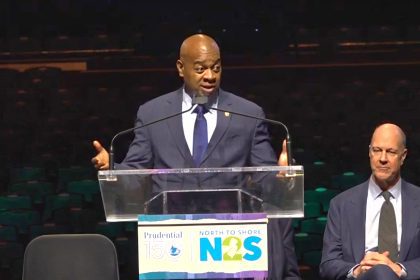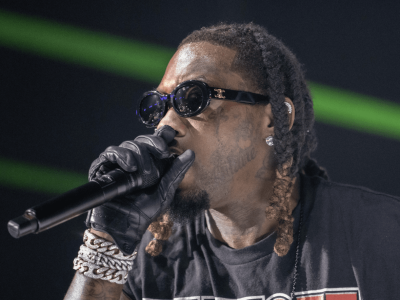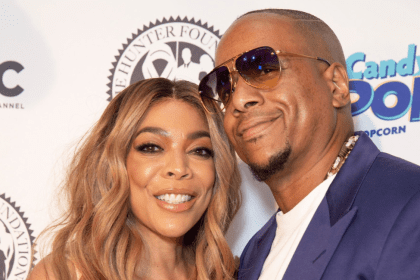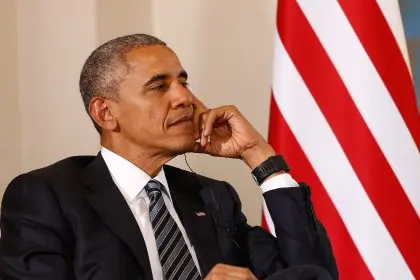In a significant political move, NAACP President Derrick Johnson called for North Carolina Lieutenant Governor Mark Robinson to suspend his gubernatorial campaign on Sept. 22, urging him to step down amid allegations of racist remarks made on a pornographic website’s message board. Johnson’s demand follows a Sept. 19 call from the NAACP’s North Carolina chapter president, Deborah Dicks Maxwell, for Robinson to leave the campaign.
Johnson’s demand echoes a larger pattern in recent years where the NAACP has pushed back against Blck political candidates whose rhetoric and policies run counter to the civil rights organization’s core mission of advocating for racial equality, human dignity and social justice.
NAACP’s history of political intervention
The NAACP has a long legacy of holding Black leaders accountable when their actions or ideologies undermine the progress of racial justice. In past elections, the organization has taken a firm stance against candidates whose views appear to support policies that could harm marginalized communities. This tradition of intervention speaks to a broader effort by the NAACP to ensure that Black political representation remains aligned with the values of civil rights, equality and collective progress, rather than individual gain or divisive rhetoric.
The case against Robinson
Mark Robinson’s alleged racist comments — particularly self-identifying as a “Black Nazi” and his controversial views on slavery — have drawn widespread criticism from both political allies and opponents. According to reports, Robinson allegedly stated that slavery was “not bad” and even joked about purchasing slaves. These comments — first reported by CNN — have become central to the controversy, triggering Johnson’s public call for Robinson to withdraw from the race.
“Anyone who identifies as a Black Nazi or revisits the concept of institutionalized slavery has no place in government, especially not as a governor,” Johnson said on MSNBC, condemning Robinson’s remarks.
Johnson emphasized that the normalization of such ideologies is dangerous, not only for Black communities but for society as a whole. Robinson’s statements — which trivialize the horrors of both slavery and the Holocaust — cross a moral line that the NAACP has fought to preserve for over a century.
The NAACP’s call for integrity in Black leadership
This isn’t the first time the NAACP has demanded accountability from Black leaders. Throughout its history, the organization has called out candidates and officials — both Black and white — whose rhetoric or actions threaten the progress of racial and social justice. The NAACP’s mission is clear: All leadership must uphold the principles of equality, integrity and human rights. Johnson’s insistence that Robinson suspends his campaign reflects a broader message that Black candidates cannot simply rely on their race for support; they must also champion values that uplift their communities.
“We’re political as hell in the sense that we care and [have] concern for individuals. We have concern for African Americans, for women’s rights, for those who have been marginalized, for working poor people across racial lines. Anyone who belittles human beings, to try to marginalize communities, they should not have a place in politics, a place in society,” Johnson explained in his MSNBC interview. “We want to see an America that looks more diverse, inclusive and prosperous, not an American based on a 1930s apartheid system.”
Robinson’s defense and the pushback
In response to the allegations, Robinson has denied making the racist comments attributed to him, claiming that they were lies spread by his political opponents.
“The things you will see in that story are not the words of Mark Robinson,” the Trump surrogate asserted in a video on X, according to USA Today, dismissing the accusations as a smear campaign. Despite the growing backlash and Johnson’s demand, Robinson has shown no intention of withdrawing from the gubernatorial race.
Yet, Robinson’s defense does little to quell the broader concerns about the normalization of extreme rhetoric in politics — particularly from Black candidates who, instead of advocating for racial justice, are accused of aligning with dangerous ideologies. Johnson’s comments reflect the frustration of many who view Robinson’s statements as not only irresponsible but also harmful to the legacy of civil rights leaders.
Black candidates and the NAACP’s role
The NAACP’s intervention in Robinson’s case fits within a larger pattern of the organization stepping in when Black political candidates stray from the principles that define progress for African Americans. In recent years, the organization has been vocal about the need for Black political figures to uphold values of racial justice, particularly as they navigate increasingly polarized political landscapes. The NAACP’s nonpartisan stance allows it to critique candidates from both sides of the aisle when their actions or views run contrary to its mission.
Black leaders have often faced unique scrutiny from the NAACP. Figures like South Carolina Senator Tim Scott have had their positions critically examined when their policies were seen as diverging from the organization’s goals. The NAACP’s approach is rooted in its historical role as a moral compass for Black political engagement. The organization understands that representation alone is not enough; candidates must also be committed to the fight for justice and equality.
What’s next for Robinson and the GOP?
The controversy surrounding Robinson underscores a larger dilemma within the GOP, particularly as the party seeks to diversify its leadership while maintaining its appeal to a predominantly white, conservative base. Robinson, like other Black Republican figures, represents a complex intersection of race, politics and ideology. His campaign highlights the challenge of balancing race with the far-right rhetoric that has gained traction in the party. Whether Robinson’s candidacy survives this scandal or not, the NAACP’s push for accountability ensures that race alone won’t shield him from critique.













